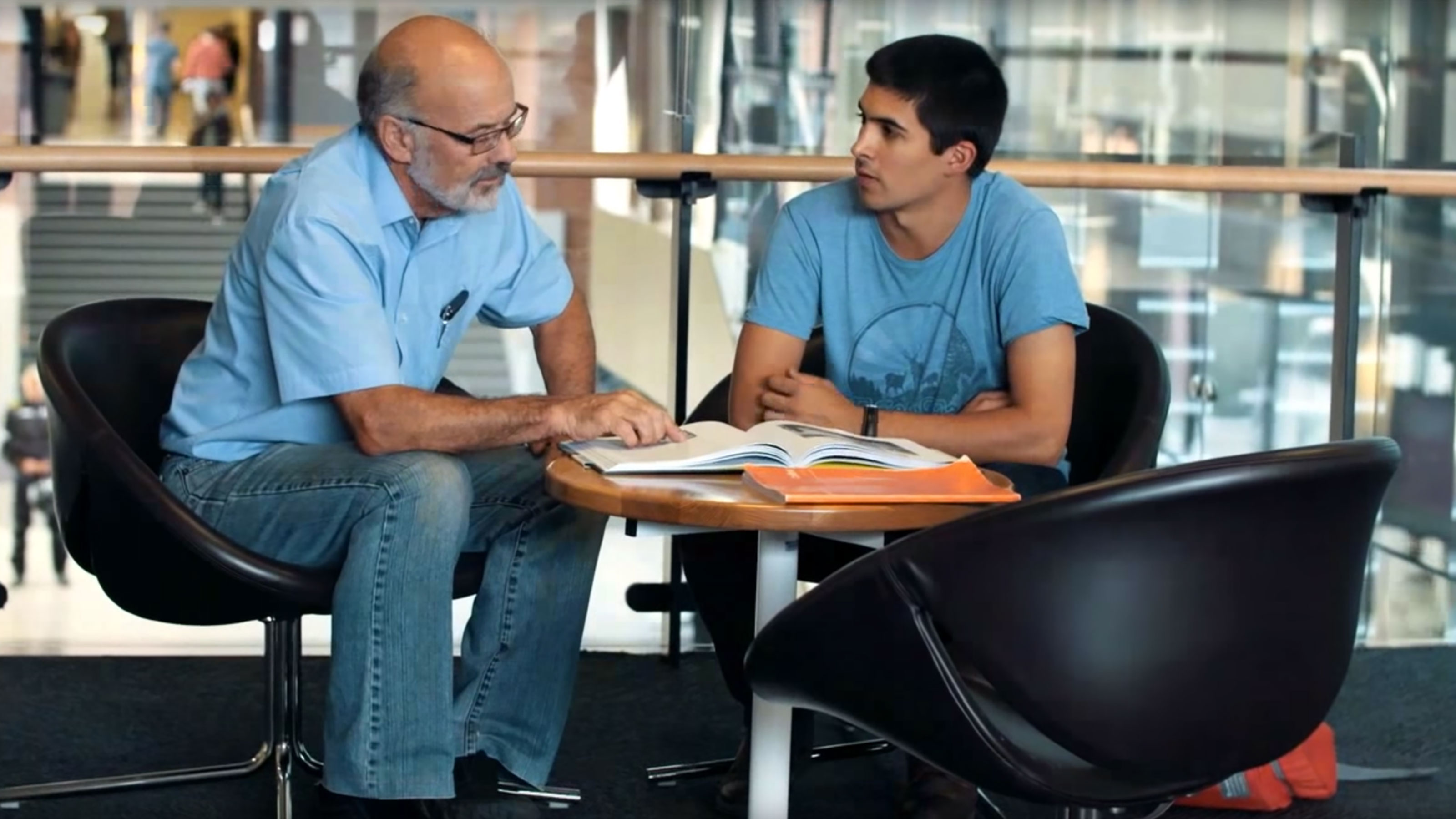- Te Wānanga Matū / School of Chemical and Physical Sciences
- About us
- Study
- Research
- Chemistry research index
- Physics research index
- Research groups
- Advanced functional luminescence
- Computational materials science
- Environmental physics, geomagnetism and palaeomagnetism
- Immunoglycomics
- Inorganic synthesis
- Magnetic resonance physics
- Nanomaterials devices group
- Nanoscale Electrochemistry for a Low-Carbon Future
- Natural products chemistry
- New materials and technologies
- Organic synthesis
- Porous Materials Research Group
- Radiation imaging
- Raman Laboratory
- Space and astrophysics
- Space science
- Spintronics research
- Ultrafast laser spectroscopy
- Research centres and institutes
- Our facilities
- SCPS events for schools
- PhD opportunities

Our students join a lively intellectual environment that offers innovative teaching and world-leading research in superb new facilities.
Combining our expertise in chemistry and physics gives us an edge in materials science research, and collaborations take our discoveries from the lab to the world.

Chemistry
Study Chemistry and uncover the world’s chemical building blocks. Design new drugs, discover new ways to harness energy, or create new tech to recover precious resources.
Find out moreAvailable subjects
- Chemistry

Physics
Study Physics. Explore new forms of energy generation, understand changes to our climate, and open the door to futures in space exploration and quantum computing.
Find out moreAvailable subjects
- Physics

Space Science
Space is the next frontier in human exploration. Discover what it takes to get into space—from science and technology to the big issues behind space travel.
Find out moreAvailable subjects
- Space Science
-
Bachelor of Biomedical Science with Honours
BBmedSc(Hons)
Duration: 2 trimesters of full-time study. Or normally 4 trimesters for part-time domestic students.
Points: 120
Type: Coursework and research
Schedule: Lectures and self-directed research
-
Bachelor of Science with Honours
BSc(Hons)
Duration: 2 trimesters of full-time study. Or normally 4 trimesters for part-time domestic students.
Points: 120
Type: Coursework and research
Schedule: Lectures
-
Graduate Diploma in Science
GDipSc
Duration: 2 trimesters of full-time study or normally 4 if studied part time
Points: 120
Type: Coursework
Schedule: Daytime lectures
-
Master of Drug Discovery and Development
MDDD
Duration: 3 trimesters of full-time study. Or normally 6 trimesters for part-time domestic students.
Points: 180
Type: Coursework, research and practicum
Schedule: Lectures and lab sessions
-
Master of Science by thesis
MSc
Duration: 2–3 trimesters of full-time study. Or normally 5–6 trimesters for part-time domestic students.
Points: 120
Type: Research
Schedule: Self-directed study
-
Master of Science by coursework and thesis
MSc
Duration: 4–5 trimesters of full-time study. Normally 8 trimesters for part-time domestic students.
Points: 240
Type: Coursework and research
Schedule: Lectures and/or lab sessions
-
Postgraduate Certificate in Drug Discovery and Development
PGCertDDD
Duration: 1 trimester of full-time study. Or normally 2 trimesters for part-time domestic students.
Points: 60
Type: Coursework, research and practicum
Schedule: Lectures and lab sessions
-
Postgraduate Diploma in Drug Discovery and Development
PGDipDDD
Duration: 2 trimesters of full-time study. Or normally 4 trimesters for part-time domestic students.
Points: 120
Type: Coursework, research and practicum
Schedule: Lectures and lab sessions
-
Postgraduate Diploma in Science
PGDipSc
Duration: 2 trimesters of full-time study. Or normally 4 trimesters for part-time domestic students.
Points: 120
Type: Coursework
Schedule: Lectures and/or lab sessions
-
Doctor of Philosophy
PhD
Duration: Minimum 3 years full-time study, or at least 6 years if studied part time
Points: 360
Type: Research
Schedule: Self-directed research
Our research expertise
Research in the School of Chemical and Physical Sciences covers a wide range of exciting topics and is at the forefront of international study.

Hear from our students and graduates
“At university you definitely have to be more independent, but there are also support systems in place if you need them.” Brettelemani Manaia, PGDipSc student in Chemistry.
Read their storiesLatest news
We're sorry, we're not able to retrieve this information at the moment
Upcoming and current events
We're sorry, we're not able to retrieve this information at the moment

